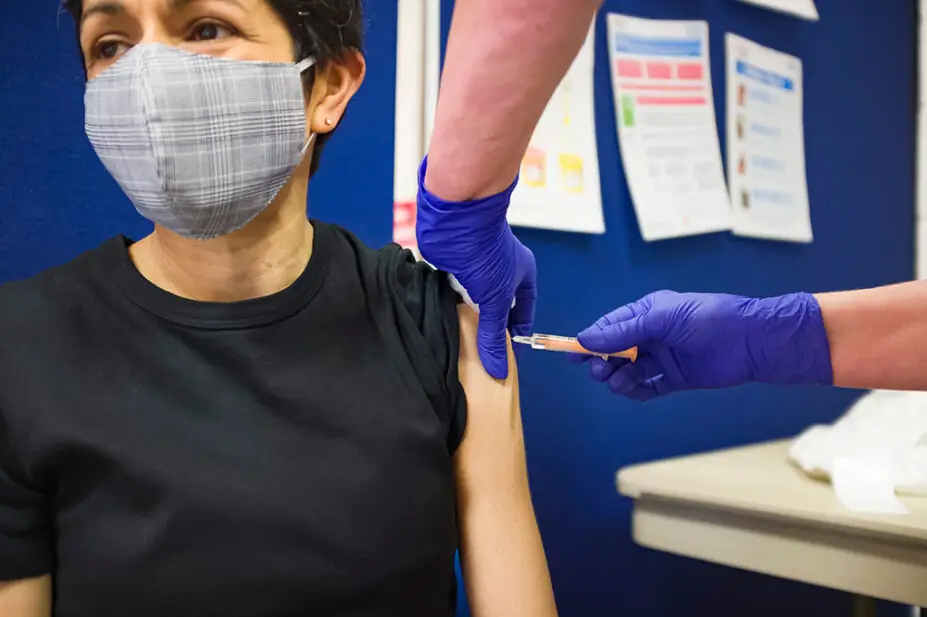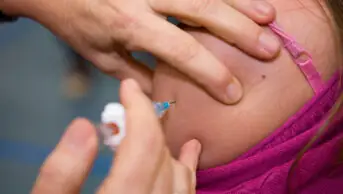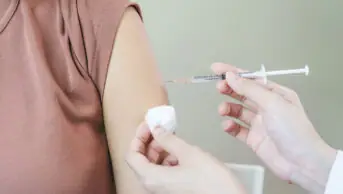
Shutterstock.com
Mpox vaccines will be offered in stages to eligible people across the UK as part of precautions against the disease, the UK government has announced.
A statement published by the UK Health Security Agency on 16 September 2024 said that the UK government has ordered 150,000 additional doses of mpox vaccine from manufacturer Bavarian Nordic in preparation for any clade I cases that may enter the country.
“The vaccine will be offered to those eligible in stages as it becomes available over time and based on clinical need,” the statement said.
Vaccinations will be offered to people based on advice from the Joint Committee on Vaccination and Immunisation, published in November 2023, which recommended offering prioritising gay or bisexual people; men who have sex with men; healthcare professionals who work in specific infectious diseases inpatient units and sexual health services; specialist healthcare and humanitarian works who work as part of the mpox response in affected countries; and close contacts of any confirmed cases.
“Further information on how vaccination will be offered will be provided in due course,” the statement said.
The UKHSA’s announcement follows growing concern over the spread of clade I mpox in the Democratic Republic of Congo (DRC) and parts of Africa, which the World Health Organization has declared a public emergency.
There are two major genetic groups (clades) of the virus: clade II mpox (formerly known as ‘West African clade’); and clade I mpox (formerly known as ‘Central African or Congo basin clade’), which is considered to be more severe.
The new ‘clade Ib’ mpox virus first emerged in September 2023 in the east of DRC and has spread rapidly in Africa.
Mpox spreads mainly through close contact with someone who has the virus, including skin-to-skin (such as touching or sexual intercourse), mouth-to-mouth (such as kissing), or face-to-face (such as talking or breathing close to one another).
Susan Hopkins, chief medical advisor at the UKHSA, said: “There are no cases of clade I mpox confirmed in the UK and the risk to the general UK population of being exposed to mpox clade I is currently considered low.
“However, we are preparing for any cases that we might see in the UK and vaccination plays a vital part in our defences.”
Commenting on possible pharmacist involvement in the vaccination programme, Nathan Burley, advanced public health/sexual health services pharmacist at NHS Greater Glasgow and Clyde, said: “Specialist pharmacists in the area of sexual health may be involved in supporting this expansion of mpox vaccination through producing standard operating procedures, signing off patient group directions, training staff on safe delivery of vaccines intradermally or otherwise, and seeing patients or complex patients to deliver the vaccination itself.
“The news that 150,000 doses have been procured is reassuring for sexual health services in the UK; however, it is important to state that the 2022 mpox outbreak (largely clade IIb) and the 2024 outbreak (largely clade Ib) are affecting different groups,” he added.
Richard Angell, chief executive at Terrence Higgins Trust, commented: “This is a big win for our campaign to make mpox vaccines available and very welcome news that the government has listened.
“Today, ministers have agreed to implement the JCVI recommendations from November 2023 on mpox vaccination, have secured over 150,000 additional doses of mpox vaccine, and found funding to roll out a vaccination programme. The first line of defence against future outbreaks is vaccines.”


